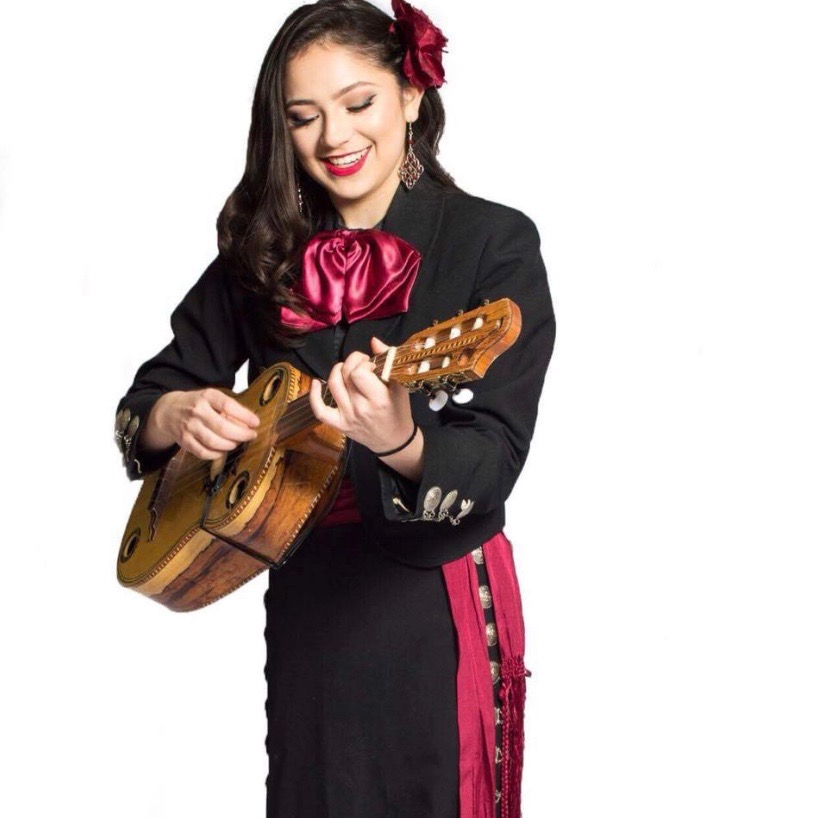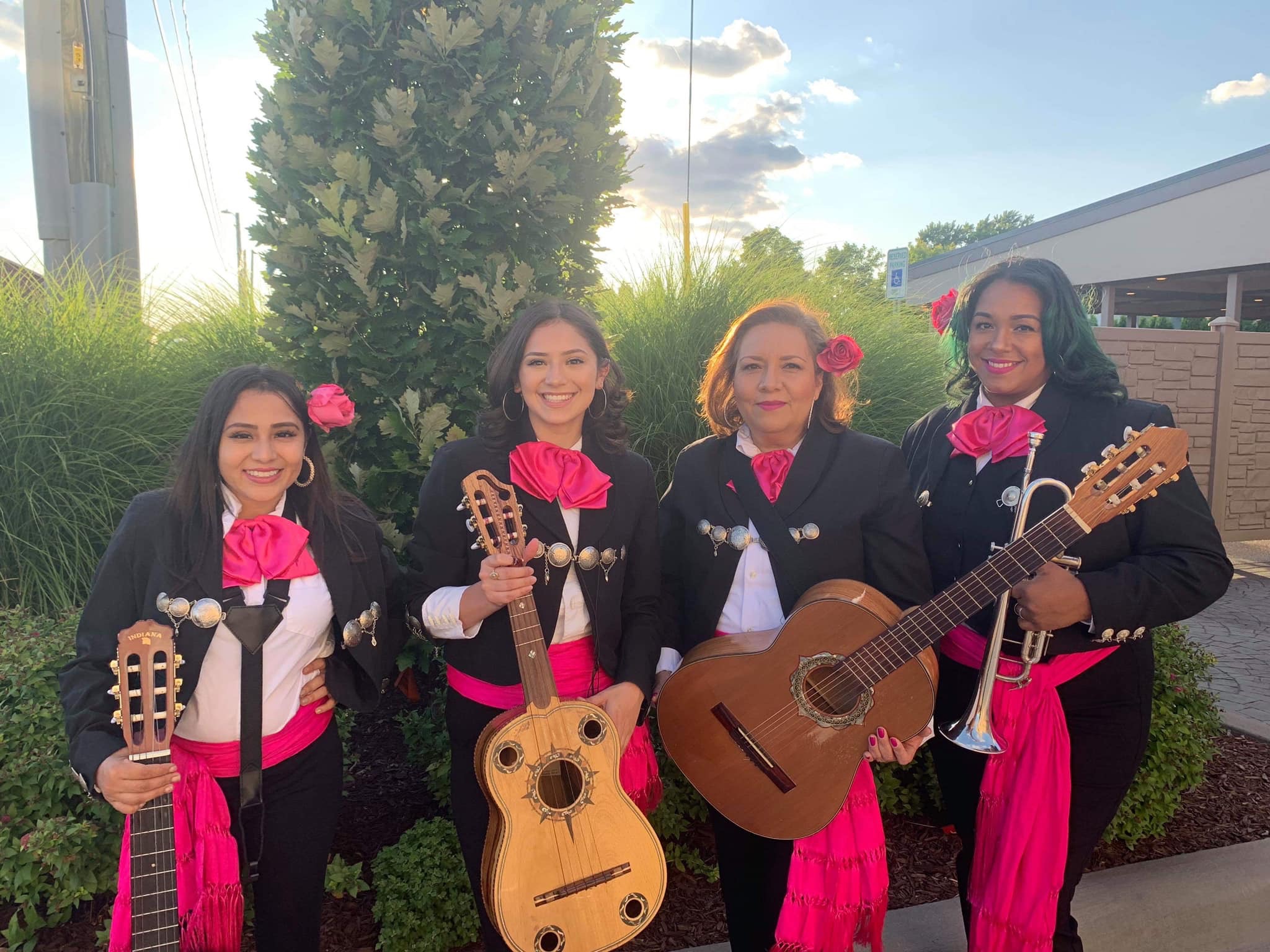
Cuéntame Episode 2: Camilla-Isabella Cantu
This is a story of how a Southwest Detroit girl formed an all-female mariachi group in a genre dominated by mostly men.
My name is Camilla-Isabella Cantu, I am twenty years old. I was born and raised in southwest Detroit. I am the second oldest of 8 siblings and three years ago I started Mariachi Femenil Detroit, which is the first woman-based mariachi band in the state of Michigan and in the city of Detroit.
I started playing mariachi music when I was in the 8th grade, but even before then I was playing drums and percussion when I was in the 3rd grade. It was a journey, even to start playing music because I went to Detroit public schools which had very limited resources for music and arts programs. It was harder to have a fully funded band program at my elementary school.
I ended up playing the drums in the third grade, and my music teacher thought it was kind of uncommon because a lot of the girls in my grade preferred the clarinet or wanted to play the flute. But I was very adamant about wanting to play the drums. My brother had played the drums the year before and I loved how loud it was and how much attention the drum commanded.
You couldn’t listen to a drum and not pay attention to it — it really grabbed your attention and I really loved that.
Playing the drums gave me a sense of rhythm and being the timekeeper for the rest of the band helped me build a solid identity of a person. I ended up taking on and really assimilating the traits of the drum into my own personality.
In the 8th grade, I was presented with the opportunity by Dennis Newhouse, and he was very passionate about bringing mariachi music to the youth in southwest Detroit. In the previous years, he had started Mariachi violin programs and had taught a few students in elementary school how to play classical mariachi violin. Years later, he really tried to revamp that program, and in that, he recruited my band at the time which was me — the only woman — and four other guys. Two trumpets and then a saxophone, so we were like his dream for a new mariachi group, kind of.
At first, I didn’t want to play mariachi music at all, I was like: that is the music that old people play “cuando estan borrachos” when they’re drunk and they wanna remember the old days. I had my idea of what mariachi was and it didn’t fit me at the time. I was young and Banda music was the big thing so I wasn’t really into it.
I picked up the guitar and in the first few months I ended up loving it a lot. This was the first mariachi program in Detroit, so there were no official instructors so I ended up teaching myself to play the guitar. And we ended up forming, Mariachi Juvenil Detroit, which was the first youth mariachi in Detroit.
And I just fell in love with the music and the genre and it held so much for me. Identifying as a Mexican woman and being very close to my culture, it was an honor to take this tradition and to bring it to the city of Detroit.
I played in the group and it was a great time. I played next to 6-7 men; I was the only woman for the majority of my Mariachi career. I played with them from when I was 13 to 16 years old. I think it was maybe when I was 15, that I started noticing that I was being treated differently in the group.
One day when we were practicing, we would read off sheet music at practices and I noticed something in the music that wasn’t right. I tried to voice that opinion to the rest of my members and the leader of the group said it was fine, that the music was correct. And I was very persistent about it, “no I think this part of the music is not right, it’s not written right.”
He was a man four years older than me but he was kind of stuck on me being wrong, that the music was right. But it wasn’t until the other guitarist in the group mentioned the same mistake that the leader finally accepted that maybe the music was wrong.
The summer that I was 16, I had already started to notice the ways in which I was being seen more like a woman in the group than as a musician. It got to the point for me where I didn’t want to be in that environment. I voiced a lot of my concerns to my mom, who was the manager of the group at that time. She was noticing the same things, as well as my younger brother who was also playing with us.
When I tried having this meeting with them, we ended up going our separate ways. And that was really devastating for me because I had never played with any other mariachi groups in Detroit. The mariachi scene, in general, is very male-dominated, and it’s filled with a lot of older men. There was just a certain danger of putting myself in a situation where I was 16 and I was surrounded by older men — situations where I wasn’t sure of or I didn’t feel safe.
RELATED CONTENT
But I didn’t want to stop playing Mariachi.
It was very important being a woman and not seeing other women represented. But in a genre dominated by men, it’s really not a priority.
I ended up going to Ecuador for a month and I met a mariachi group there. We talked and we played and I noticed that there were more women in that group. And I wanted to bring that to Detroit.
I was also very influenced by Mariachi Flor de Toloache, which is a group in New York. It’s the first woman mariachi group in New York. I had the opportunity to meet them and play a song with them. They were everything that I wanted, but they were in New York and I was only 16. I couldn’t pick up everything and move.
After meeting Flor de Toloache, going to Ecuador and leaving the group, I had this really big motivation to start a woman group in Detroit. My mom was very supportive of this ambition and we just made a design. It was a Mariachi Femenil Detroit design and we just went with it.
We had an open house and we were going to try to recruit woman musicians. But only one woman came and it was very disappointing for me at the time because I had all these expectations about what starting your business was going to be.
I had an idea of what that looked like, and it didn’t really occur to me that it takes longer than what I thought. That woman is now one of the members of the group and she is one of the oldest members. She is a lead singer and she plays guitar.
That is how things happened. Slowly I started meeting these women, to where we currently have four women. I started meeting these talented musicians who were down for the cause, to be a part of a women Mariachi.
I am the director of the group, but I am also the youngest. They are very open and accepting to hearing me and respecting my voice as a director. It is also very tight-knit and family-oriented. We are together in the group and it is also a source of income for us but at the same time, we are a support system for each other. We really try to push each other on whatever outside pursuits people have going on.

Tune in to the podcast episode to listen to Camilla’s full story from her own voice.











LEAVE A COMMENT: